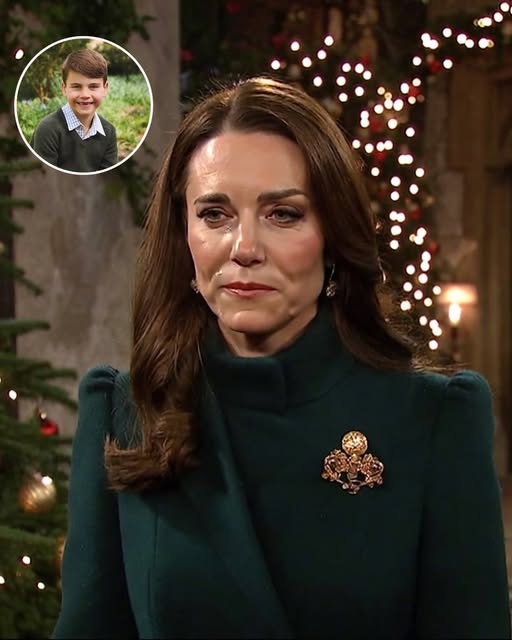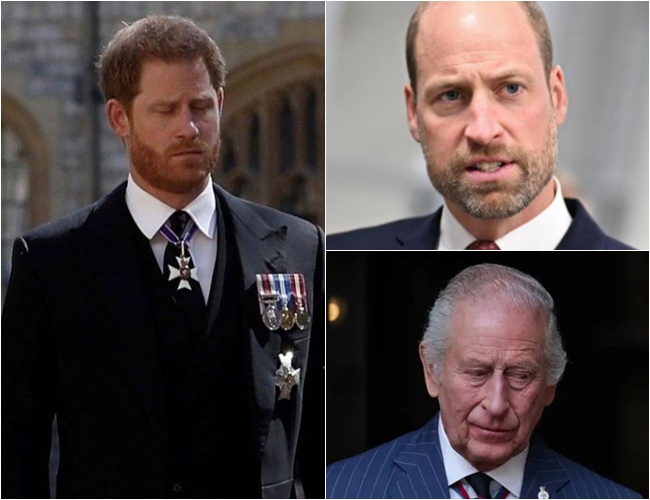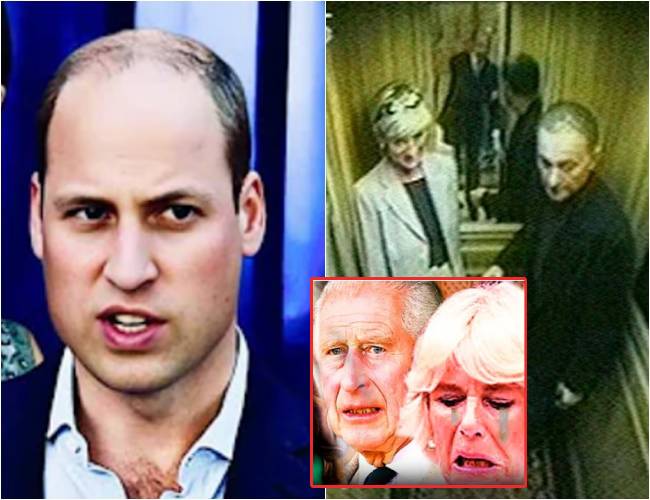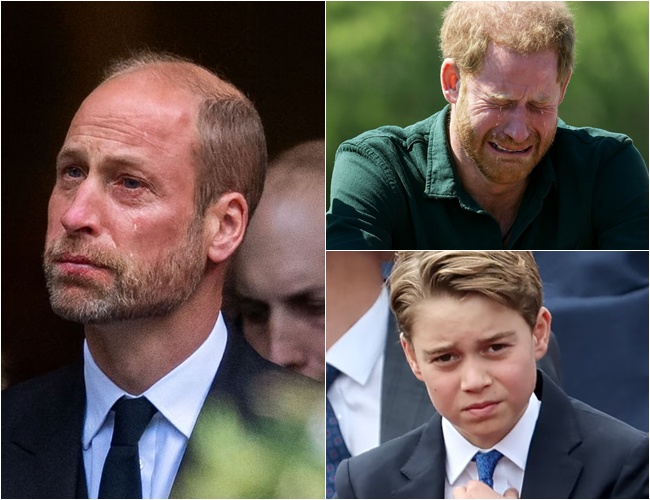A Tear in the Silence: The Day the Empire Fell
Five hours ago, the air hung heavy with grief, the kind that presses against your chest and makes each breath feel like a betrayal. In the heart of the palace gardens, beneath the gray shroud of an unforgiving sky, Catherine, Princess of Wales, stood utterly still. A lone tear traced a delicate path down her cheek, catching the light before disappearing into the somber black of her mourning attire. She did not raise a hand to wipe it away. It was as though the tear itself belonged to history now—a single, undeniable proof of heartbreak.

Nearby, Princess Anne stood with her head bowed. Her hands were clasped tightly in front of her, knuckles pale, as if holding together the fragments of a world that had just splintered. No journalists had been allowed inside the gates. No hurried footsteps of press photographers disturbed the scene. There were no royal salutes or ceremonial trumpets. Just the muted rustle of leaves and the distant, hesitant song of a lone blackbird. The silence itself seemed to mourn.
This was not a funeral, though the grief was no less profound. This was the quiet acknowledgement of a truth no one wished to name: the empire had fallen—not in the way empires usually do, with armies, revolutions, or fire—but in the slow, devastating collapse of what it once meant.
In that moment, the grandeur and gilded history of the monarchy felt small against the weight of human sorrow. Titles, palaces, and crowns could not shield them from the inevitability of change. The events leading here had been whispered about in drawing rooms, debated in Parliament, dissected by analysts and scholars. But speculation had ended. This was real.
For centuries, the monarchy had stood as a pillar—sometimes of unity, sometimes of controversy—but always of presence. Generations had looked to it as a constant in a shifting world. Yet, in recent years, the cracks had widened: political challenges, public scrutiny, and an evolving society that questioned the need for such an institution in modern times.
And now, the inevitable had happened. The royal standard no longer flew above the palace. The offices of state had been dissolved. Governance would continue, but without the ceremonial heartbeat that had punctuated British life for so long.
Kate’s tear was not only for what was lost, but for the generations who had lived and died under the idea of the crown. It was for the stories, the traditions, the carefully choreographed rituals that would no longer be repeated. It was for the weight of legacy she had carried, and for the sudden, aching emptiness of its absence.
Princess Anne did not speak. Neither did Catherine. Words would have been clumsy here—too small for the enormity of the moment. Instead, they stood as silent witnesses to the end of an era, to a chapter closing with neither applause nor outrage, but with the quiet dignity of two women who had given their lives in service to something larger than themselves.
History will write of the fall of the empire in many ways—in political textbooks, in documentaries, in opinion columns. But those who were there will remember it not as a headline, but as the day the garden was silent, the day a tear fell and was left unbrushed, the day the empire slipped, quietly and irrevocably, into memory.






